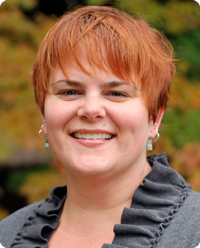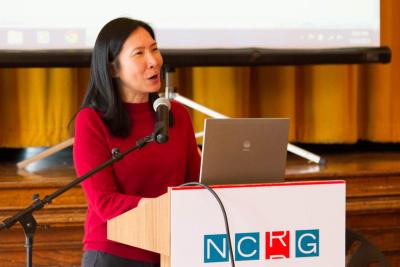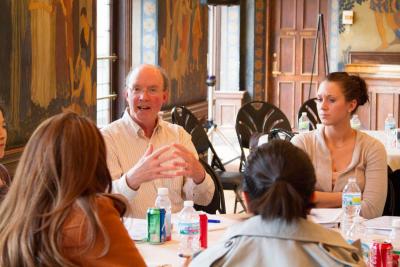New Collaborations In The Field Resulting From The NCRG’s 2013 Annual Education Summit

The following is a guest post from Bethany Bray, Ph.D., a visiting faculty associate at The Methodology Center of Penn State University. Dr. Bray is a member of the NCRG Conference on Gambling and Addiction’s Advisory Board, and recently attended the NCRG’s workshop for early stage investigators as a part of the 2013 Annual Education Summit.
_________________________________
Last week, the National Center for Responsible Gaming (NCRG) hosted a workshop for early-career scientists on grant and manuscript writing as part of the2013 Annual Education Summit. The workshop provided an invaluable opportunity for young investigators to network with established researchers who focus on gambling disorders and other addictions. The speakers provided advice on submitting grants to theNational Institutes of Health(NIH) and theNCRG, as well as tips on how to strategize which journals to send manuscript submissions. This event was a critical investment in the future of gambling disorder research; it established a supportive community and mentoring network for young investigators interested in researching an incredibly understudied area.
Whether an early-career scientist is on the tenure track or not, there are two primary markers of success: receiving grant funding and publishing peer-reviewed articles. For those of us interested in gambling, it can be difficult to achieve these goals for a variety of reasons. First, gambling disorders currently is not a priority area for the largest funder of public health research,NIH. Second, the field is small and it can be difficult to find collaborators and more senior researchers who can be mentors. The NCRG’s workshop brought a few of the biggest names in gambling disorders research to meet with more than 20 young investigators.Mr. Alan Feldman,Dr. Jon Grant,Dr. Ken WintersandDr. Tammy Chungprovided valuable advice and feedback on grant and manuscript submissions that will help early-career scientists transform their ideas into important scientific products.

The goals of the workshop were straightforward: (1) understand grant writing best practices, (2) discover innovative approaches to gambling research, and (3) build collaborations. The mentors helped us learn about NCRG grant opportunities like theEarly Stage Investigator Grantthat can be used to fund our work and establish ourselves as leading scientists in gambling and addiction research. We also learned about the ongoing work of all of the presenters, as well as work being done at theCenters of Excellence in Gambling Researchheaded by Dr. Grant andDr. Marc Potenza. Excitingly, some of us even connected and have plans to pursue work together;Dr. Serena KingandIare already moving forward on a project together.
Several key principles for young investigators emerged from our time together. First, as Dr. Winters stressed, you must bePERSISTENTandFLEXIBLEwhen crafting your grant proposals. Second, you should take theINITIATIVEin seeking out mentoring and guidance, as well as in pursuing your research agenda. Third, as Dr. Chung emphasized,FIND A STRATEGYthat helps you maintain your motivation and momentum for writing. Fourth, as Mr. Feldman reminded, always keep in mind thePEOPLEyou are trying to help at the end of this long road of research.

Workshops like this one for early-stage investigators are essential to the success of the field of gambling disorders. Together, we are building a strong community young investigators can rely upon to support each other when we hit bumps in the road. Connections made among members of the research community and other key stakeholders in the field are essential to the future of research in this area. I hope that the NCRG will continue to offer workshops like this one to young investigators!
NCRG staffICRG NewsAnnual Education SummitEarly Stage InvestigatorgrantsNCRG Grants ProgramNCRG Research Program

